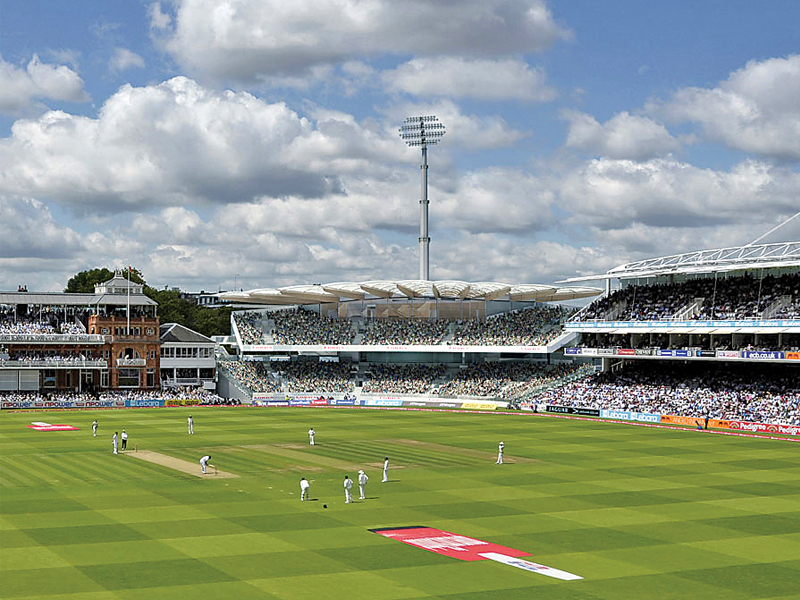
Standing between the official takeover of cricket by the economic elite of the sport, the ‘Big Three’ – India, Australia and England – are the ‘Middle Three’, as it were – Sri Lanka, South Africa and Pakistan.
Yet, let there be no mistake – they are the ‘Middle Three’ only in terms of money. They are the top-ranked teams in two of the three forms of the game – including the purist form of the game, Test cricket, and the shortest and, ironically, the most lucrative version: Twenty20.
This isn’t about producing the best product, which few will deny these three do. It’s about what follows production: marketing, consumerism, and, of course, money. And that’s capitalism for you.
Hence, the outcome of this crisis can probably best be predicted using theories that deal with machinations associated with such issues – game theory to decide the fate of a sport. Fitting.
There aren’t two prisoners in this dilemma. There are three. That makes this equation more complicated. Yet when has cricket ever been simple?
As the situation stands, the boards will meet once again to vote on the proposal later this week, which requires eight full members to sign on. Right now there are seven. There were five last week, but Bangladesh capitulated. Before them, it was the once-mighty West Indies. On the sidelines, their price was probably met.
That leaves the resistance to the Pakistan Cricket Board (PCB), Cricket South Africa (CSA) and the Sri Lanka Cricket Board (SLC). Each will know that only one of them matters at the moment; the one that will jump ship, giving the International Cricket Council vote the required eight.
The other two will be left in the lurch, and perhaps forever live with the repercussions of being the ones who tried to deny the new rulers of the game.
The prisoner’s dilemma theorises that betraying the other is more lucrative than cooperating, and self-interest, that woefully misanthropic ideology dictating the actions of players in a capitalist market, is the only rational way to go.
Of the three, PCB probably has the most to gain from this deal. It could mean lucrative series against archrivals India, which have been elusive. Perhaps even talk of an end to years of exile away from home. Perhaps its players will be allowed to participate in the financial orgy that is the Indian Premier League.
Yet, all these dreams could be dashed, all this potential gain squandered, in the blink of an eye if South Africa or Sri Lanka decide to give in. CSA and SLC will no doubt have their own dreams and needs.
But the thing is, perhaps these three need to realise that this is a false dilemma. It is an illusion created by the elite.
You see, there is one major difference between the current crisis and a classic case of prisoners’ dilemma – the absence of isolation. They have access to one another, hence there is no need to guess, no need for machinations or to betray. This is not necessarily a zero-sum game.
The fact is that they can all get what they want if they sit together, discuss their concerns and requirements if they are to cede control, and on what terms. The real discussions ought to be with each other, not with the ‘Big Three’ or even isolated at home.
The writer is the political editor at The Express Tribune.
Published in The Express Tribune, February 4th, 2014.
Like Sports on Facebook, follow @ETribuneSports on Twitter to stay informed and join in the conversation.
COMMENTS (5)
Comments are moderated and generally will be posted if they are on-topic and not abusive.
For more information, please see our Comments FAQ












































What an excellent account and an equally good reading. Thanks for enlightening the readers Tribune.
Pakistani commentators and analyst 1st need to recognize the revenue genrating capacity of the big3 (especially india) and 2nd need to come up with better revenue distribution model than what is currently prevalent in the ICC. Untill the above mentioned reality is not accepted, I'm afraid pakistan will not only loose goodwill in the icc but also end up isolating itself further.
take money. surrender. typical Pakistani mindset that has reduced this country to a bad taste joke
Good recognition that this issue can be modeled with game theory, though you are inappropriately using the prisoners dilemma - as the asymmetric information criteria is nullified. Consider modeling games of cooperation instead. They result in a pareto inefficient nash equilibrium, which is the same result that you showcase in this article. Throw in a separate analysis for the long and short runs, and you would have a much more pointed result. The long run version of a cooperative game necessitates that everyone will be worse off, i.e. if everyone joins the BCCI, CA and ECB in this absurd venture, they might gain in the short run through guaranteed tours but those boards without binding long term bilateral tour contracts will definitely lose out in the long run as the three will only play profitable tours - the bottom 3-4 teams being the least profitable are most likely to lose out. This will result in the game losing out as a whole through a lack of competition - resulting in the big three eventually losing out. Sponsors will lower their bids and the three will face a reduction in tour revenue.
fascinating article.. great perspective.